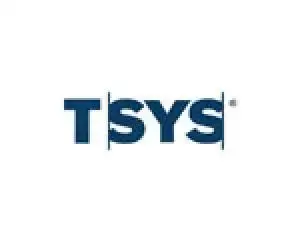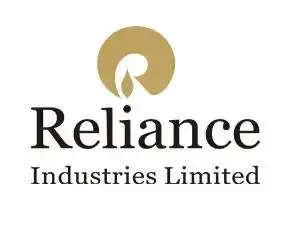
Get a Quote
Get a Quote and Find Services to Fit Your Needs 50000+ Satisfied Clients
5000+ Licenses & Registration
15 Branches across India
75 Years + Combined experience
Satisfied Clients
Services
Years Combined Experience
Get Started!

























Convert Private Limited Company to Public Limited Company Process
A private limited company, famously known as an LTD, is a privately held company. This implies that the business limits owner liability to its shares and limits the number of shareholders to 50. It also restricts shareholders from trading shares publicly.
A Public Limited Company, legally known as PLC, is a publicly held company. It is a limited company whose shares can be traded with the public. PLC can be listed or not listed on the stock exchanges. PLC requires a minimum of three directors as a prerequisite.
.jpg)
.jpg)
There are many reasons why a Private Limited company converts to a Public Limited company. But are these company heads aware of the options on how to convert a private limited company to a public limited company? The reason for the conversion of a private limited company to a public limited company can be varied, like raising the investment in the business, enabling share transferability among the general public, and so on. But the actual method and procedure for conversion is the real task to execute. Therefore, we have discussed the three most popular methods of conversion of a Pvt Ltd Company into a Public Ltd Company.
An Initial Public Offering (IPO) is the most common way a private company can go public. However, an IPO is a lengthy process. After the conversion, the public company has to observe many strict requirements. As a result, the company has to execute a typical IPO over 6 to 12 months.
Step 1: The first phase of an IPO is when the company begins to prepare for the move and performs an assessment to identify issues, if any. To do so, the firm hires an investment banker, who identifies its goals, lays out a timeline, and delivers the report to you.
Step 2: Next, the company executes the plan it developed in the first phase. During this time, companies gather the data necessary for registration and prepare legal documents.
Step 3: Once the Listing company files for registration, it enters a quiet period until the authority approves its IPO plans. When IPO information release is limited during this period, the SEBI allows companies to communicate about other matters, including disclosing factual business information.
Step 4: After the company gets a go-ahead from the SEBI and meets the listing requirements of stock exchanges, its shares can begin trading.
Now, the IPO is complete, and the firm is officially a public company.
Direct Listing is a relatively new process that companies can use to go public and raise capital without doing an IPO. A company can bypass the traditional underwriting process when it goes public through a direct listing.
In an IPO, the investment bankers make price discovery for the shares to be sold. Typically, larger investors get preferential treatment for allocating shares on the day of the Direct Listing. On that day, the company's shares become available for any investor to buy and sell on the stock exchange. Also, price discovery occurs through the buy and sell orders on the exchange without bank underwriting.
A benefit of this type of public sale of shares is that it increases the number of investors. In addition, these investors can purchase company shares, which helps to level the playing field. In recent years, companies such as Spotify, Slack, and Coinbase have opted for direct listings to go public.
The SEBI's recent decision to allow direct listings was not unanimous. Two commissioners released a statement sharing their belief that eliminating underwriters from the IPO process removes a layer of due diligence. This will help to protect investors' interests. Proceed with caution if you plan to purchase shares through a direct listing.
A Reverse Merger is a transaction in which a private company goes public using merging with or being acquired by a company that's already public. In a reverse merger, the acquiring company is usually a shell company or a Special Purpose Acquisition Company (SPAC). While the mechanism has existed for many years, it has recently gained popularity. Some market participants believe it offers more certainty for pricing and control over deal terms than a traditional IPO.
A SPAC is a company that goes public without actual business operations or selling products. Instead, the company issues an IPO and then uses the capital raised in the IPO. Then, the company merges with or acquires an existing private company. After the merger, the private company's leadership takes over. Also, the new firm continues to operate the business of the previously private company. An example of this is a sports-betting company DraftKings merged with a public SPAC Diamond Eagle Acquisition Corp. After the Merger, the shares began trading on the Nasdaq Stock Market in April 2020.
A Reverse Merger often represents a quicker and cheaper means of going public. The private company can merge with an existing company rather than go through the entire IPO process from scratch.
.jpg)
Before you're allowed to convert your private limited company into a public limited company, you must fit the following criteria
1.png)
E-form MGT 14 – Special resolution for conversion of the company into a public company is to be filed with the following attachments:
.png)
How to convert a private company into a public company? The process of conversion of a Private Limited company to a Public Limited Company is as follows:
Call a board meeting and pass a resolution after mutual agreement to convert your Pvt Ltd company into a Public Ltd company (LTD to PLC).
Call an Extraordinary General Meeting inviting your shareholders. Pass a special resolution with their approval to go through the abovementioned conversion.
Pass the resolution to increase the number of directors from two to three (if applicable). Do an RoC filing to make alterations to the Articles of Association.
File Form INR 27 to convert the private limited company to a public limited company.
Alongside INR 27, attach the Certificate of Incorporation of your private limited company when applying. It will prompt the registrar to initiate the conversion process.
We at Registrationwala provide end-to-end solutions for conversion from Private Limited to a Public Limited Company. Our services include:
Registrationwala.com is a leading legal consultancy firm providing comprehensive private limited to public limited company conversion services.
So, take your first steps towards this conversion and reach out to us.
Q1. What is a Private Limited Company?
A. A private limited company, famously known as an LTD, is a privately held company. This implies that the business limits owner liability to its shares and limits the number of shareholders to 50. It also restricts shareholders from trading shares publicly.
Q2. What is a Public Limited Company?
A. A Public Limited Company, legally known as PLC, is a publicly held company. It is a limited company whose shares can be traded with the public. PLC can be listed or not listed on the stock exchanges. PLC requires a minimum of three directors as a prerequisite.
Q3. Why would a private limited company change to a public limited company?
A. Because of the following advantages:
Q4. What makes a private company eligible to convert into a public company?
A. Before you're allowed to convert your private limited company into a public limited company, you must fit the following criteria
Q5. What documents are required for converting a Private Limited to a Public Limited Company in India?
A. E-form MGT 14 – Special resolution for conversion of the company into a public company is to be filed with the following attachments:
Q6. How to convert a Private Limited Company to a Public Limited Company?
A. The procedure for conversion of a private company into a public company is as follows:
Q7. How can Registrationwala help you to convert your Private Limited to a Public Limited Company in India?
A. We at Registrationwala provide end-to-end solutions for conversion from Private Limited to Public Limited Company. Our services include:
Q8. What are the methods through which you can convert your private company into a public company?
A. There are three most popular methods of conversion of a Pvt Ltd Company into a Public Ltd Company:

★ ★ ★ ★ ★
I very much appreciate the fact that you guys possess tremendous knowhow of private limited company incorporation. You have exhibited professional and respectful manner towards my query and I would seriously recommend you guys to all the folks looking for outstanding business services.

★ ★ ★ ★ ★
Thanks to their support, I got my trademark successfully. I highly recommend their services for anyone needing help with their intellectual property. The person assigned to me was very cooperative and helpful.

★ ★ ★ ★ ★
Thanks to their support ragistrationwala team, I got my IP-1 license successfully and special thanks to Miss.Kanishka for your great and timing support !!!!!! I have archived my goal one step forward... Thanks for the entire team....

★ ★ ★ ★ ★
Really helped a lot in getting my both VNO licenses. Great experience working with the team and very humble team, thanks for providing the vno license on time.

★ ★ ★ ★ ★
I had a good time working with Registrationwala. Good team. I would recommend their services to others.

★ ★ ★ ★ ★
It was extremely great service of Registrationwala consulting firm, and this firm is providing the best services and worry about the client's required services along the client's satisfaction.

★ ★ ★ ★ ★
Superb Experince! Within no time the trademark registration was on.Highly professional team. I am very much Impressed with the prompt response and efficiency.Thank you.

★ ★ ★ ★ ★
We had taken ISP license from registration wala and the supporting person is very helpful to taken that license his communication and his work is satisfactory and thanks for those services

★ ★ ★ ★ ★
I sincerely appreciate your prompt support in helping me get the access license so quickly. Your professionalism and efficiency are truly commendable. Thank you for going above and beyond to assist me. Keep up the great work!